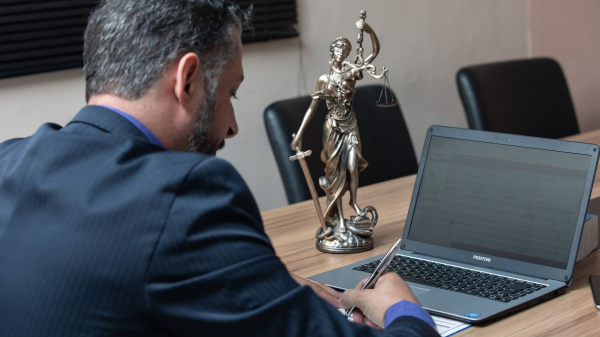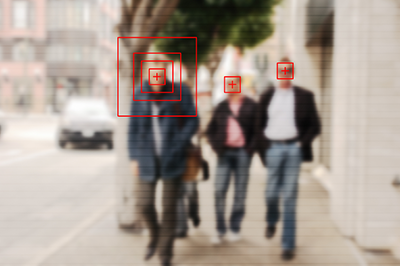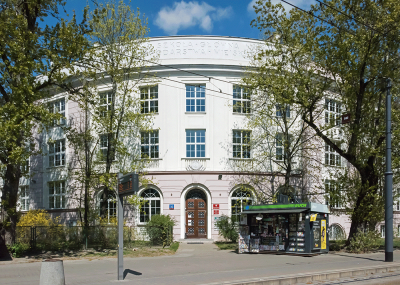
The ECtHR will consider a case (no. 47834/19) involving crucial aspects of the right to a fair trial, i.e. the right to access a lawyer in the initial stages of criminal proceedings.
International bodies, including the European Committee for the Prevention of Torture, the UN Committee against Torture or the Subcommittee against Torture, have been regularly pointing to problems concerning the provision of access to a defence lawyer that result from Polish legislation and the practice of criminal justice authorities.
The Helsinki Foundation for Human Rights has noted in its reports that access to the assistance of a lawyer at the initial stages of criminal proceedings is still not fully available. Similar conclusions emerge from reports of the National Mechanism for the Prevention of Torture, which constantly monitors this issue.
According to many national bodies, provisions of the Polish Code of Criminal Procedure do not guarantee the full exercise of rights stipulated in the EU Access to a Lawyer Directive.
Monitoring actions carried out by non-governmental organisations and international bodies also show that the currently applicable procedure for informing detained persons about their rights and obligations fails to adequately safeguard detainees’ rights.
The case before the Court
According to the facts presented by the ECtHR, the applicant was arrested in connection with manslaughter committed in January 2016. Tests carried out shortly after the applicant’s arrest revealed that the applicant’s alcohol blood content was 1.3 per mille. Several hours after his arrest, the complainant was informally questioned by police officers. The questioning lasted nearly three hours but was not recorded in a transcript. The applicant claims that at the time he was not informed about the right to remain silent or to have a lawyer present. It was not until the following day that he was formally interviewed at a prosecutor’s office. Initially, the interview was conducted in the absence of a lawyer. After a few minutes, a lawyer appeared at the prosecutor’s office and a nine-minute break was ordered to allow the lawyer to confer with the client. During further proceedings, the police officers who carried out informal questioning were heard as witnesses. They were shown the notes they took by during informal questioning. They confirmed the contents of their notes. The application to the ECtHR alleges that key findings in the applicant’s case, necessary for his defence, were made based on testimony given without the presence of a lawyer. The Court’s question for Poland is as follows: Was the applicant able to defend himself, as required by Article 6 § 3 (c) of the Convention?
Necessary protection
In its brief submitted to the Court, the HFHR stressed that access to a lawyer is essential to ensure the fairness of a trial. Given the above, there is no doubt that immediate access to legal assistance at the earliest possible stage of criminal proceedings can contribute to the elimination of procedural errors that may affect the ultimate resolution of the case and to the prevention of torture, inhuman or degrading treatment.
Outstanding international recommendations
As the Foundation also pointed out in its brief, many provisions of the Code of Criminal Procedure provide guarantees, problems with access to a lawyer in Poland, as well as with the provision of inadequate information to detainees about this right, had been repeatedly noted in recent years by international bodies operating within the framework of the Council of Europe and the United Nations. The need to ensure access to a lawyer without undue delay and to guarantee the confidentiality of client-lawyer communication was highlighted by the UN Human Rights Committee in November 2016. The Committee recommended that Poland ensure that all detainees, including juveniles, have “unhindered, prompt and adequate access to the lawyer of their choice or free legal aid from the outset of the detention”, and that all communication between the defence lawyer and the accused is confidential. On the other hand, the UN Committee against Torture argued in its 2019 report that detainees still do not have access to a lawyer before the initial questioning and that the prosecutor may decide that a suspect can be questioned without the participation of their defence lawyer. For this reason, CAT recommended that Poland should take the necessary steps to ensure that all detained persons have access to legal assistance before the initial questioning. At the same time, CAT recommended taking steps to bring national legislation and practice “into line with international instruments”, including the Convention Against Torture and Other Cruel, Inhuman or Degrading Treatment or Punishment and the Access to a Lawyer Directive. In a report published in early 2020, the Subcommittee on Prevention of Torture and Other Cruel, Inhuman or Degrading Treatment or Punishment, stated that it was “concerned that many detainees the delegation spoke to had not had the chance to consult a lawyer, especially in the first stage of proceedings. The Subcommittee is further concerned at the lack of an appropriate system of legal aid in Poland for those who could not afford a private lawyer. The Subcommittee recommends that the State party take effective measures to guarantee that all persons deprived of their liberty are afforded, in law and practice, from the time they are arrested, the right to have prompt access to an independent lawyer and, if necessary, to legal aid in accordance with international standards. Poland should take measures to introduce the list of legal counsellors to all police stations.” Issues related to access to a lawyer were also noted in the latest (2020) report of the European Committee for the Prevention of Torture and Inhuman and Degrading Treatment or Punishment.
Missed European guidelines
Problems with the practical implementation of guarantees in criminal proceedings can also be viewed from the perspective of EU law. In this year, five years will have passed since the deadline for the implementation of the EU’s Access to a Lawyer Directive. Nonetheless, many domestic organisations still feel that Poland has not fully implemented the Directive. Proposals for further legislative changes have been voiced not only by the HFHR but also by the Ombudsman and the Polish Bar Council. They focus on the effective provision of access to a lawyer immediately after arrest, as well as the availability of an adequate remedy in cases where this right has been denied. However, the Ministry of Justice has consistently argued that the applicable law implements the standard resulting from the Directive and no further legislative changes are necessary.
Strasbourg must show the way
In its brief for the European Court of Human Rights, the HFHR demonstrates that the current system of access to defence lawyers in Poland suffers from many serious shortcomings which undermine the effectiveness of the right to a defence in criminal trials. Among these shortcomings, problems with the effective communication of the right to a lawyer and the provision of an opportunity to contact a lawyer at the initial stages of proceedings where the person concerned does not have a pre-appointed lawyer are particularly significant. Obstacles, both practical and legal, may lead to a situation where the right to a lawyer in a particular case is effectively non-existent. The above means that the judgment delivered by the Court will be of particular importance for the system of procedural guarantees in Poland and the effective practical implementation of these guarantees.


